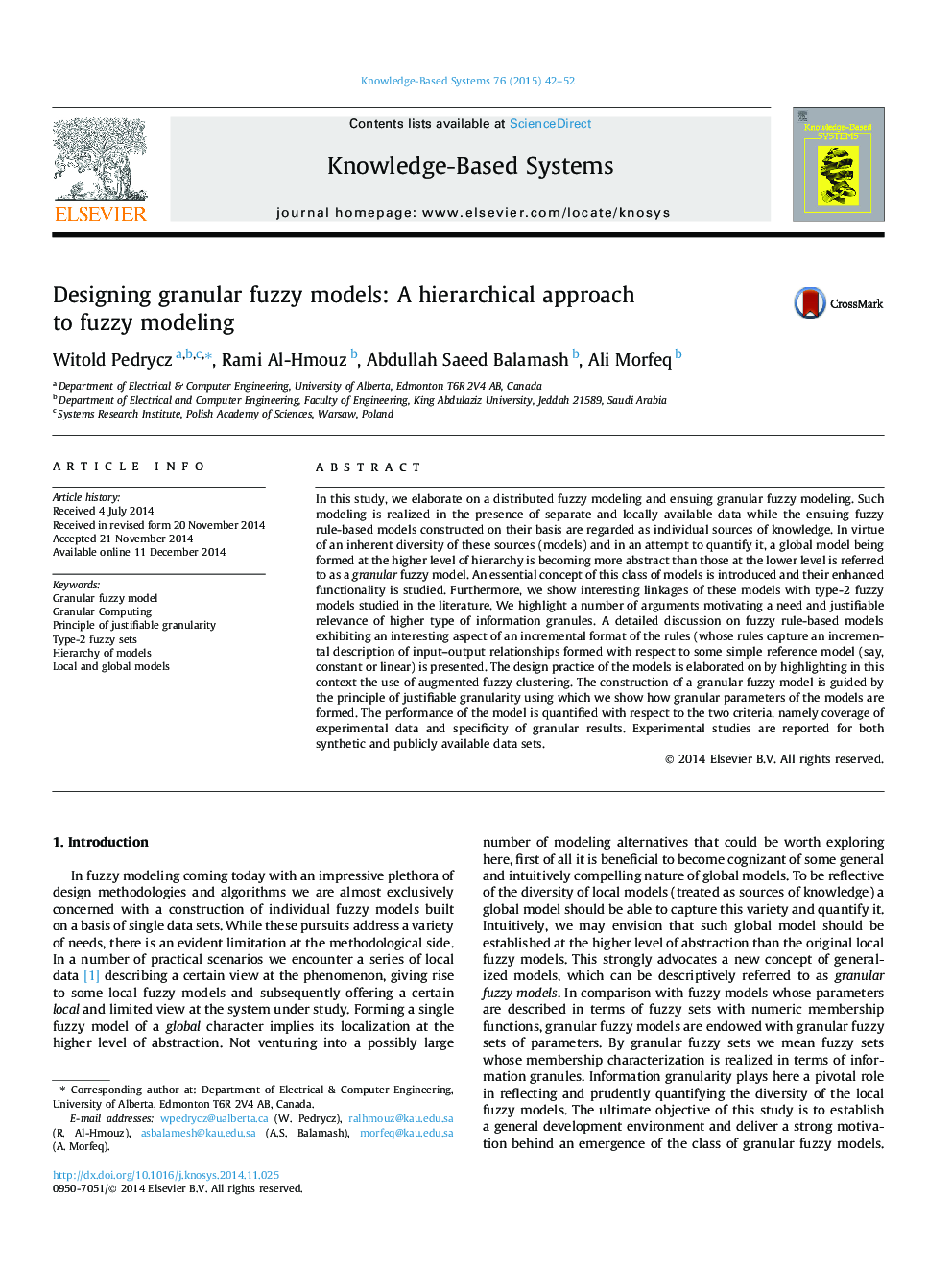| Article ID | Journal | Published Year | Pages | File Type |
|---|---|---|---|---|
| 403523 | Knowledge-Based Systems | 2015 | 11 Pages |
In this study, we elaborate on a distributed fuzzy modeling and ensuing granular fuzzy modeling. Such modeling is realized in the presence of separate and locally available data while the ensuing fuzzy rule-based models constructed on their basis are regarded as individual sources of knowledge. In virtue of an inherent diversity of these sources (models) and in an attempt to quantify it, a global model being formed at the higher level of hierarchy is becoming more abstract than those at the lower level is referred to as a granular fuzzy model. An essential concept of this class of models is introduced and their enhanced functionality is studied. Furthermore, we show interesting linkages of these models with type-2 fuzzy models studied in the literature. We highlight a number of arguments motivating a need and justifiable relevance of higher type of information granules. A detailed discussion on fuzzy rule-based models exhibiting an interesting aspect of an incremental format of the rules (whose rules capture an incremental description of input–output relationships formed with respect to some simple reference model (say, constant or linear) is presented. The design practice of the models is elaborated on by highlighting in this context the use of augmented fuzzy clustering. The construction of a granular fuzzy model is guided by the principle of justifiable granularity using which we show how granular parameters of the models are formed. The performance of the model is quantified with respect to the two criteria, namely coverage of experimental data and specificity of granular results. Experimental studies are reported for both synthetic and publicly available data sets.
